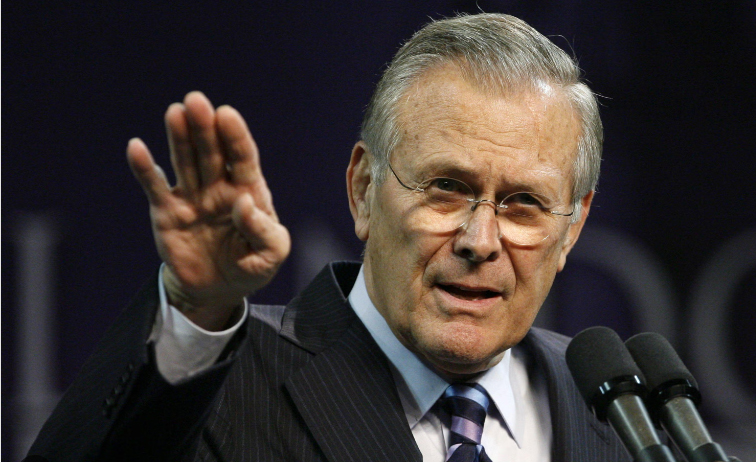In his fifth article looking at the Cyprus problem from a diplomatic viewpoint, Andreas Pirishis looks at the ill-conceived approach to securing support from other countries
Cyprus’ participation in the Non-Aligned Movement (NAM) has become a subject of discussion by political analysts only in recent years.
Some consider it a mistaken and damaging choice, while others claim that our good relations with the non-aligned prevented the recognition of the so-called ‘TRNC’ and saved the sovereignty and legitimacy of the Republic of Cyprus.
Yet, the fact is that the few isolated attempts over the years for recognition of the illegal entity in the occupied part of Cyprus all originated from countries of NAM.
It is also a fact that every time we were faced with such eventualities, we would always turn to the United States government for help asking for its intervention.
No matter how many times we asked, the US always responded positively and the danger was averted thanks to its actions, which were immediate and effective.
General Kenan Evren, who was Turkish president when the unilateral declaration of independence was made in 1983, mentioned in his memoirs that the president of the US sent a special envoy, Donald Rumsfeld, to convince him to withdraw Turkey’s recognition and cancel the establishment of the illegal ‘TRNC’. The US was probably the only country that took specific action at the time regardless of whether it was effective.
One of the gravest problems we had in communicating with the outside world was our inability to speak to them in the language of diplomacy: What do I want, what do I suggest so that it can be done, how do I help a friendly country to promote my request?
This inability is rooted in our emotional approach. The psychological traumas brought upon us by the tragedy of the invasion and occupation, the feelings of desperation and bitterness at the injustice we suffered dominated Cypriot public opinion. Inevitably, it became impossible to use reason and objectivity in presenting our views.
The condemnation of Turkey, its crimes against the Greek Cypriot people and its intransigence in efforts for a solution to the Cyprus problem often became the priority and the main objective of our enlightenment campaign. As a result, the promotion and projection of our own positions and objectives for a solution became of secondary importance. It was placed on the back burner.
One president of the Cyprus-France Friendship Group in the French Senate, after his return from an official visit to Cyprus, described to me his experiences as follows:
“Our visit was very pleasant but not equally useful. During our visit we met the political parties’ leaderships and various other officials. We went there to listen and better understand the problem, to become aware of how you see the solution and how we could help.
“Unfortunately, they wasted their time and ours, trying to explain to us the Turks are barbarians and how many crimes they committed in Cyprus.
Few things about the Cyprus problem were said, and even fewer for its solution.
They kept looking at the recent past and not towards the future.”
This tactic has proved counterproductive. It is not possible to instill in the representatives of third countries the same feelings that we have towards Turkey, especially when they maintain significant bonds and relations on all levels.
Furthermore, their interpretation of the reasons for the invasion were different from ours.
I will never forget my shock when, three days after the Turkish invasion, I heard the radio commentator, Ivan Levi, praise Turkey which he described as the only country that took a decision to intervene militarily to save Cyprus from the Athens Junta.
In another case, our embassy in a Western country, with which we maintained very friendly relations, sent a letter to the country’s foreign ministry denouncing Turkey’s behaviour in Cyprus, characterising it as Nazi. The foreign ministry of the host country in its written reply blasted the language used by our embassy, saying among other things, the following, which I mention from memory: “Turkey happens to be a friendly country and such characterisations against it are unacceptable. Under normal conditions we should be asking for the recall of the ambassador, but because he assumed his duties very recently and due to our remarkably close and friendly relations with Cyprus, we will not do it this time; rest assured we will handle the matter differently if a similar act is repeated.”
Devoting such a large part of our resources to denounce and expose Turkey abroad was not only counterproductive, but it was also at times harmful. It would have been preferable to have concentrated on explaining how our rights were being violated, projecting our vision for our future and spelling out the solution we were seeking.
It is easier to convince third parties about the violation of our rights, which was glaringly obvious. It is easier to convince them of the soundness of our objectives, but it is impossible to instill in them hostility towards Turkey.
In our search for a fair settlement, we needed the help and support of the international community to tackle Ankara’s intransigence. To secure their backing, we needed to persuade them to share our objectives.
This could only have been done by working closely with them, seeking their counsel and keeping them fully informed about our plans, moves and objectives. Only if they were convinced of our sincerity and the correctness of our objectives, would they actively participate in our efforts and stand by us.
Let us not forget tailwinds do not exist for a ship that does not know its destination.







Click here to change your cookie preferences